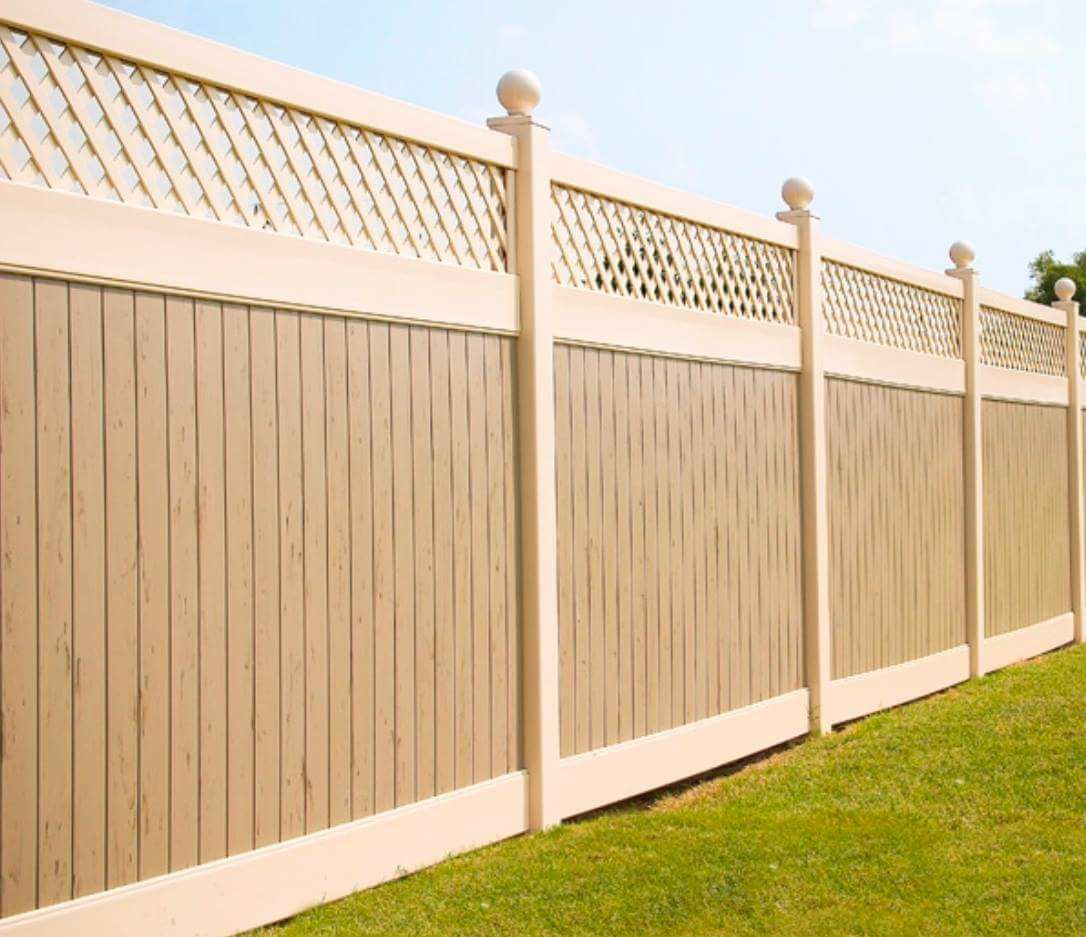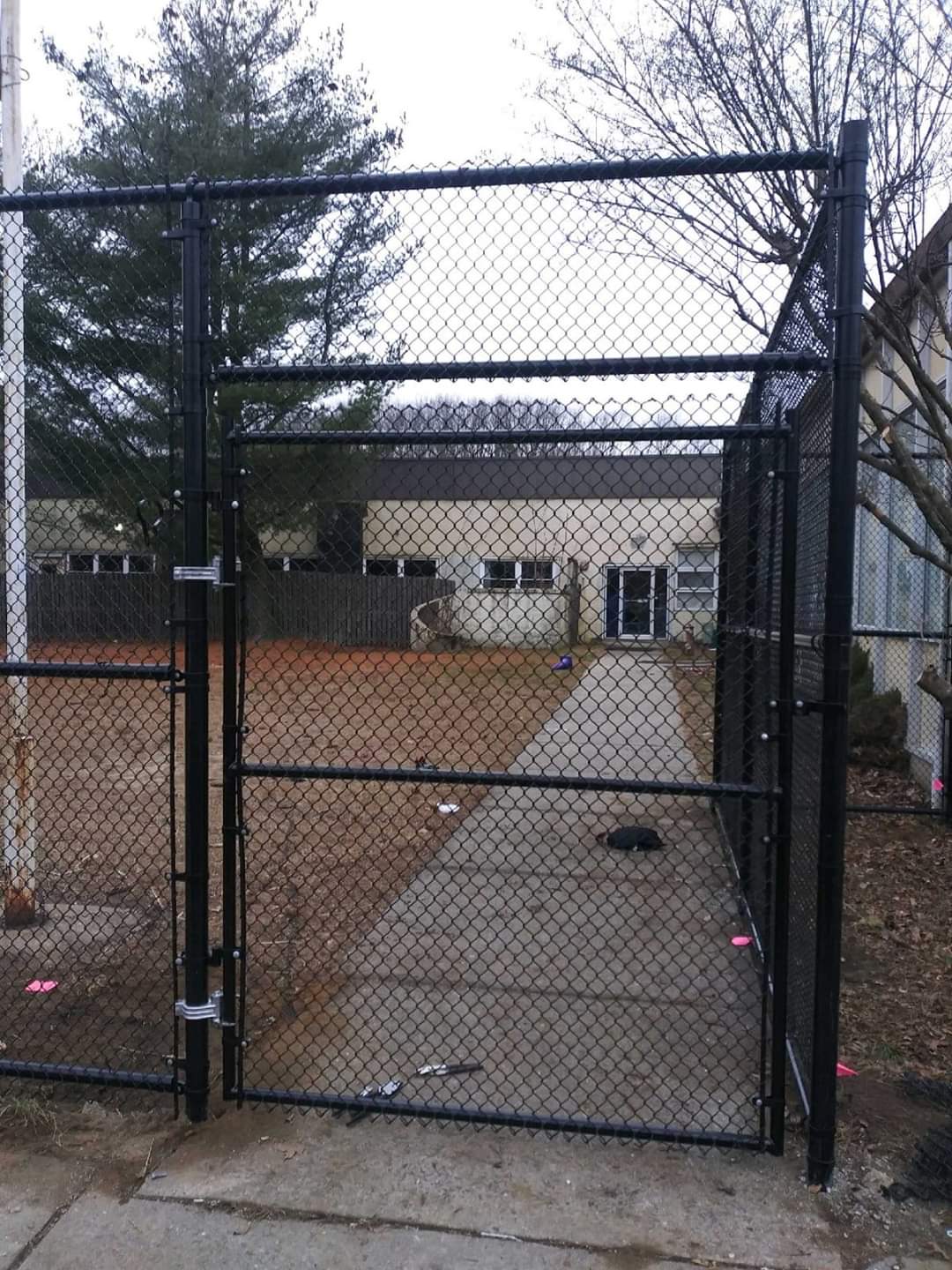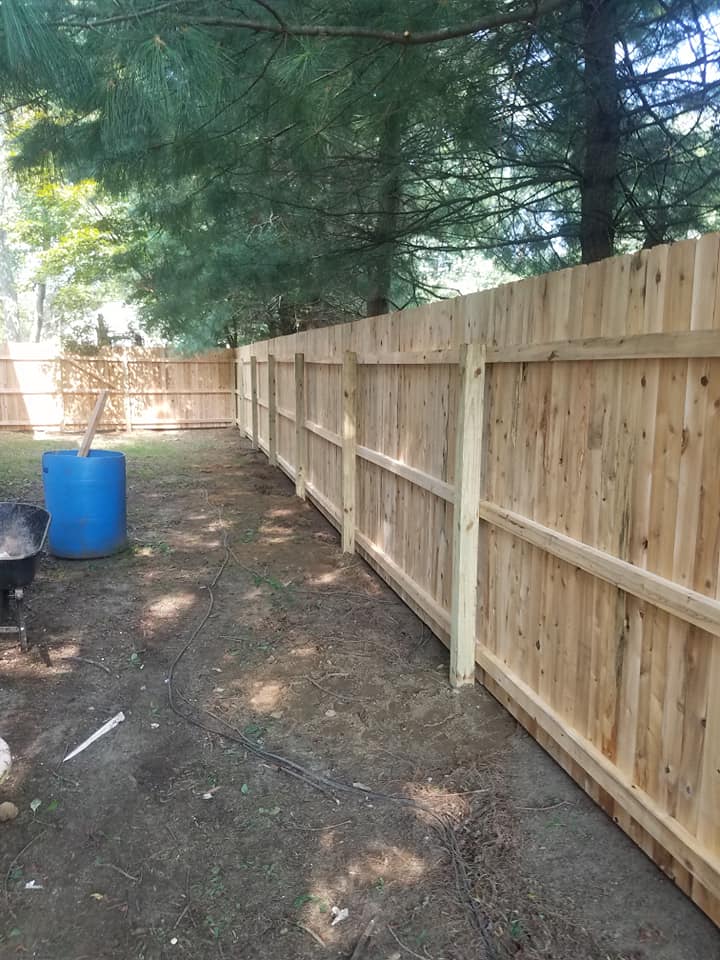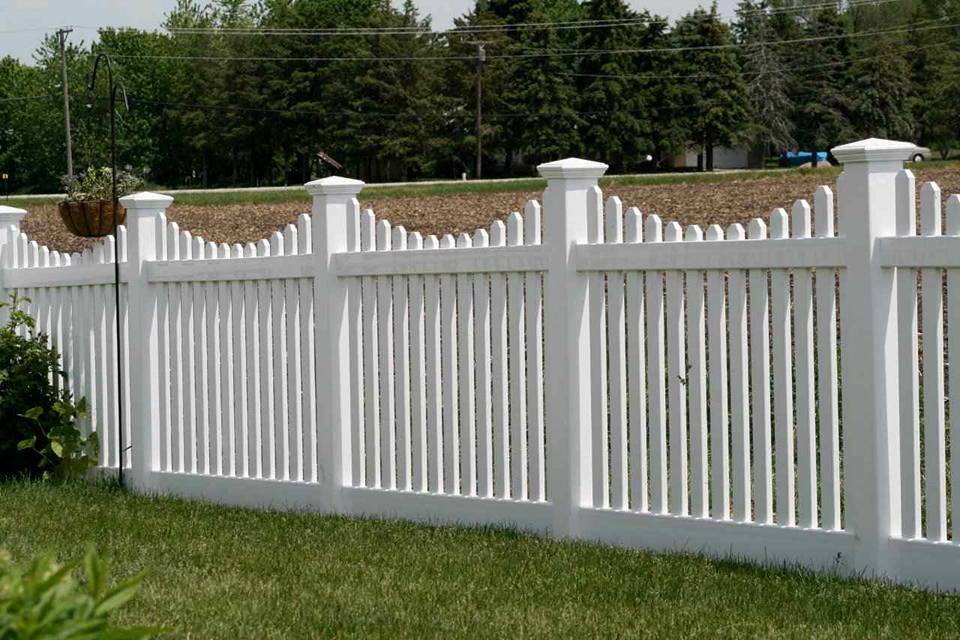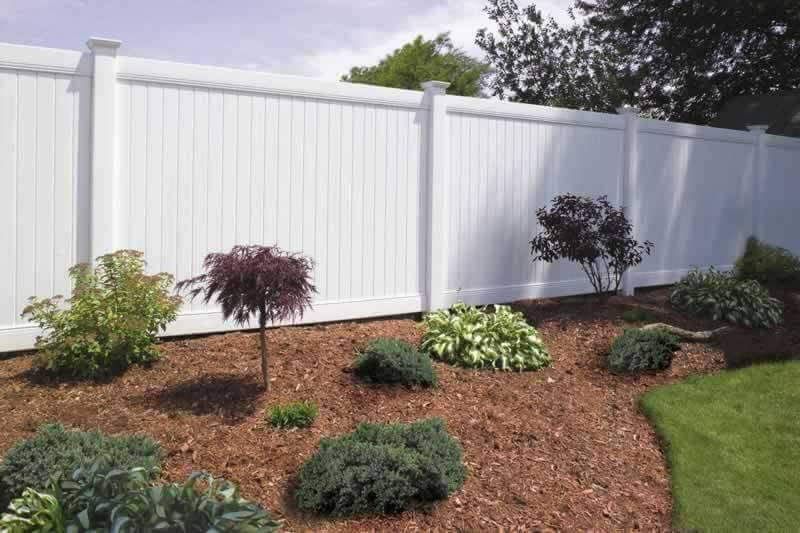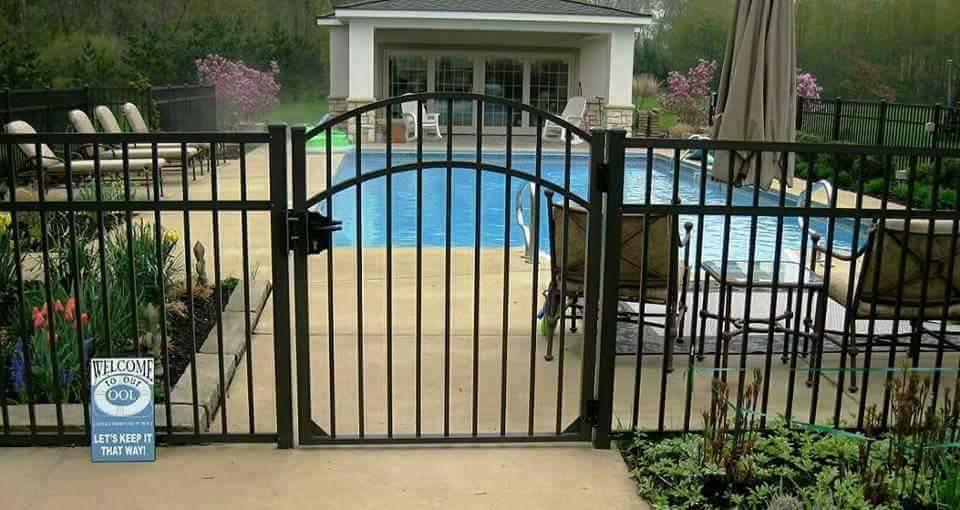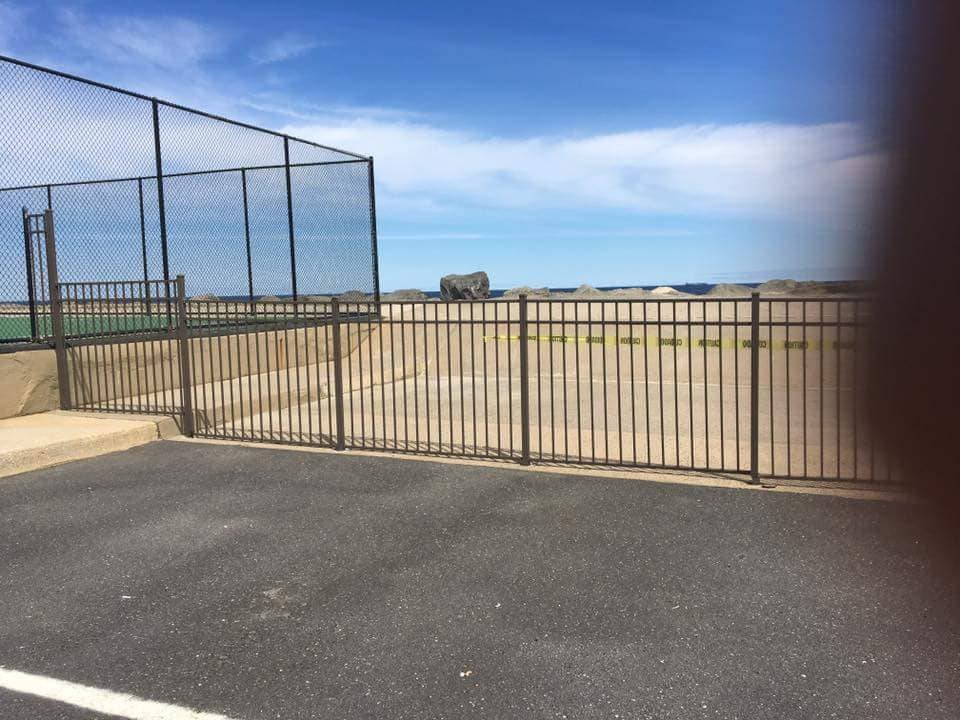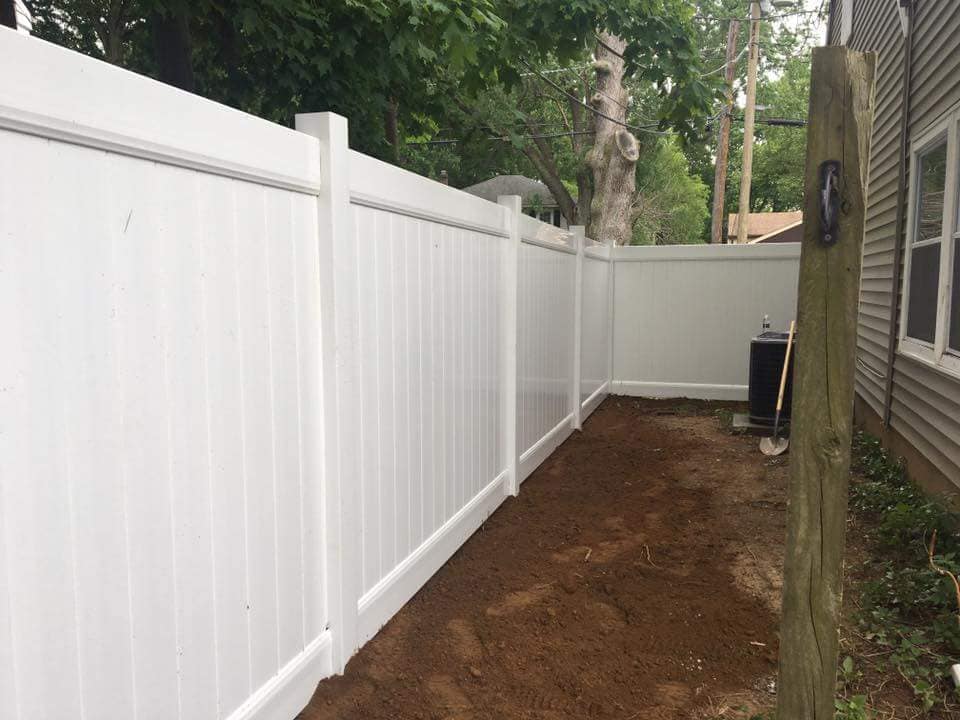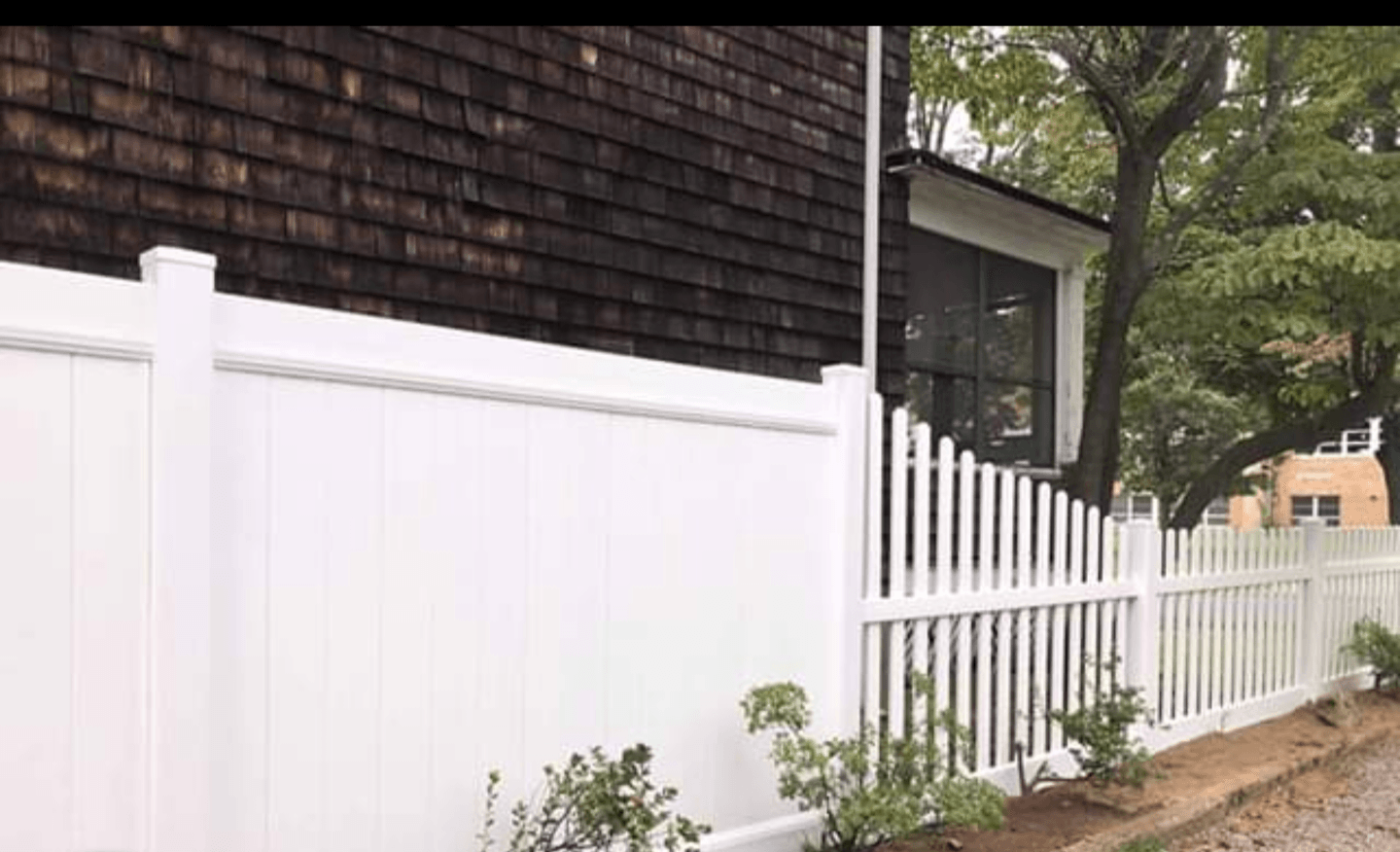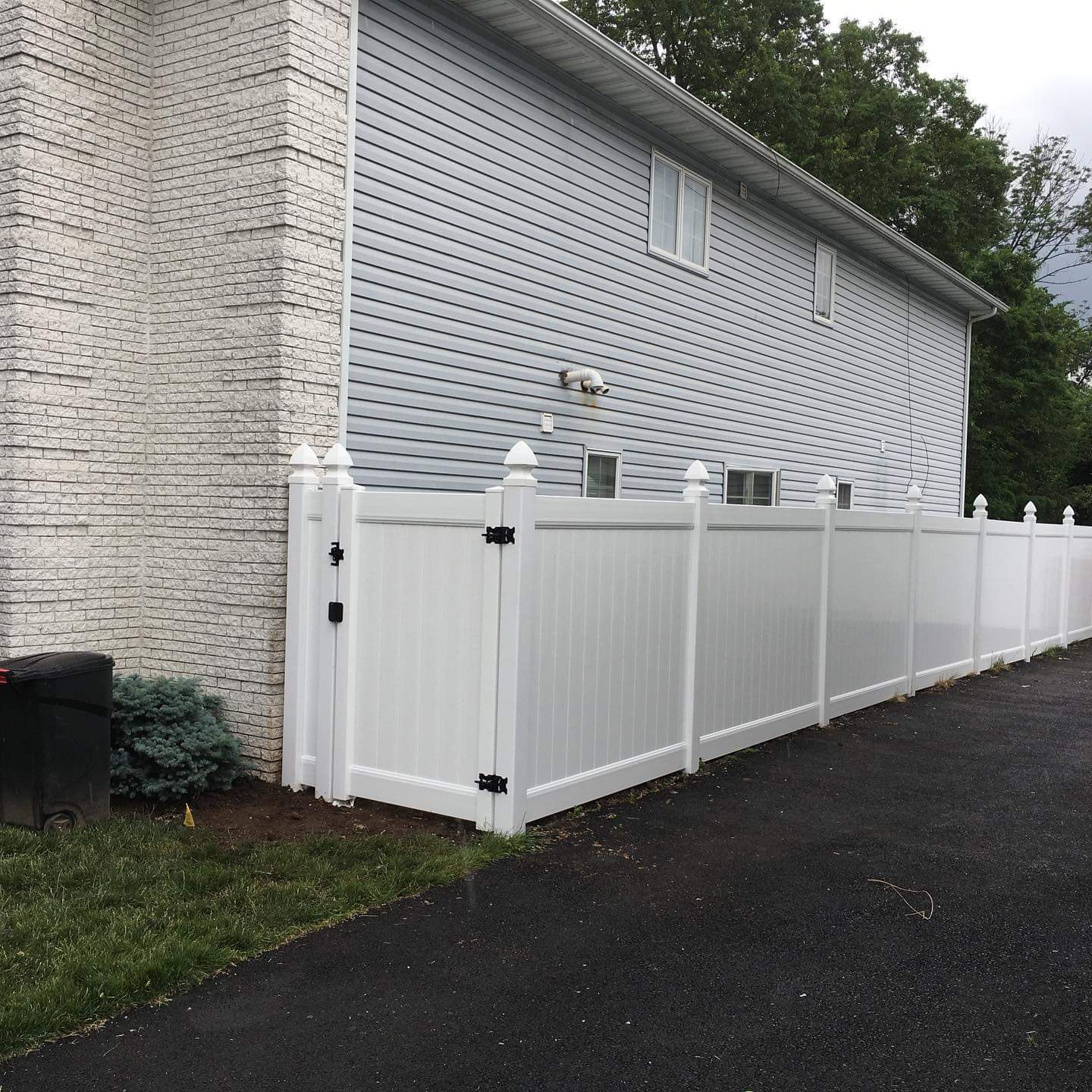What To Do Before Installing a Fence in Monmouth County, New Jersey
Get a Free Quote! (732) 400-5426What To Do Before Installing a Fence in Monmouth County, New Jersey
There are many different things to consider before installing a privacy fence on your property. You'll want to find out if you need a permit, talk to your neighbors, and get a land survey. You'll also want to make sure that the fence will fit in with other properties in the area.
Finding out if you need a permit
Before constructing a fence, it is important to find out if you need a permit. A building inspector can provide you with the paperwork you need and explain the codes in your area. You may have to pay a small fee to have the application approved. Also, you should get a survey of your property lines. This is important in figuring out where to put the fence and to sketch out the outline of the fence.
You should also check the rules in your town or neighborhood. Some neighborhoods don't allow certain types of fences, while others may require building permits for fences six feet or taller. It is important to follow the rules and regulations to avoid fines or other problems.
You may want to hire a fence contractor to install your new privacy fence for you. The contractor can also handle the permitting process. But if you're building a fence yourself, you'll have to pull permits and pay for them. This process can be complicated, depending on your location.
A permit is required for commercial and residential fence projects. It may be easier to build a fence without a permit in a rural area, but it will be more difficult in cities. This is because there are stricter zoning laws and neighborhood design standards in metropolitan areas.
You should contact your local city hall to find out whether you need a building permit before installing a privacy fence. You may also have to pay a fee. A building permit can help you avoid any problems after you begin the installation process. You should also check if your property has a property survey. It is important to find out if your property has underground utilities. If your property is not surveyed, you might risk damaging an underground utility and losing service.
If you live in a city where fencing permits are required, you should contact the city office and neighborhood association to find out what regulations your community has in place. A building permit is not always necessary, but it is a good idea to check with your local government office or building inspector.
Talking to neighbors
If you're planning to install a privacy fence, it's a good idea to talk to your neighbors before installing it. This can help you minimize conflict and other concerns from your neighbors. It's important to remember that neighbors are not always rational, so it's important to talk to them with tact and respect.
It's also a good idea to keep communications formal. Communicating your plan with neighbors early on can help you avoid any misunderstandings, as well as build their support. You can also include supplementary documents that explain the details of your project and solicit their input. This way, your neighbors will have a say in the final product, and you'll be able to implement their suggestions without causing a scene.
If you live in a neighborhood with neighborly rules and regulations, talk with them about your plans. While you're not legally obligated to discuss your plans with them, it's good to let them know that you're building a fence on your property. Construction noise can irritate your neighbors, and trespassing construction workers can disrupt your plans.
Moreover, you should also be honest with neighbors about the cost of your new fence. They may be concerned about the cost of the project and whether they'll have to pay for it or not. Therefore, it's a good idea to discuss the costs and the duration of the installation with them in advance.
In addition to asking for input from neighbors, it's also important to discuss the timeline for the installation. The process will likely be accompanied by loud construction noise and construction workers walking on your neighbors' property. Be sure to keep your neighbors updated about progress so that you can avoid misunderstandings and get the best price.
Talking with neighbors before installing a privacy fence is especially important when you are planning to
install a fence
right next to your neighbors' properties. Not only will you have to consider their wishes when installing a fence, but your neighbors will have to look at it, so make sure they'll be happy with the result.

Checking with your HOA
Before installing a privacy fence, homeowners should check with their HOA to make sure the fence does not violate the rules of their community. The HOA rules and regulations on fences differ from property to property. It is also important to consider zoning regulations, as these can differ from those imposed by your HOA. If your HOA has restrictions on fences, it is important to obtain a copy of the regulations.
While HOA guidelines are often nitpicky, they are in place to improve the quality of life for the neighborhood and the value of individual properties. Moreover, it is important to remember that a fence will have an impact on the view of your neighbors, which is why it's important to follow the guidelines of your HOA. A poorly placed fence will block your neighbor's view, and this can be detrimental to the aesthetics of the community.
HOAs often have strict rules and regulations regarding fences. These rules may include height, type, and materials. Often, homeowners must adhere to these rules or risk being fined. In order to avoid any trouble, homeowners should contact their HOA board members and get their approval in writing. The HOA board will usually schedule a hearing if you fail to obtain the necessary permissions.
The height of your privacy fence is another consideration. If your HOA prohibits the use of certain materials, you may have to remove your privacy fence. In such cases, you could face fines and even a lien on your home. Moreover, if your HOA requires you to apply for permits, you should check with your local building department. If necessary, you can also contact a fence company in your area to help you get the necessary permits.
Before you begin installing your fence, make sure to get a property survey. This will ensure that you are on your own property. If your neighbors are unhappy with the height of your fence, you may have to make some compromises.

Getting a land survey
If you are planning to install a privacy fence in your backyard, you must know your boundaries. Otherwise, you can create a legal problem. First of all, you need to get a land survey for your property. These surveys show the boundaries of your property and any rights of way. You may be able to find a copy of a property survey from your county records office.
A land survey is essential if you are building a privacy fence or other structure around your property. It ensures that you do not cross any property lines that belong to someone else. Another benefit of having a land survey is that you can avoid disputes with your neighbors.
Getting a land survey can be a simple process. The first step to getting a survey is to organize all the land-related documents you have. Once you have these documents organized, you can contact the surveyor who conducted your previous survey. They may be able to offer you a discount for recertifying your existing survey.
A land survey is a great way to make sure that your fence is not directly on someone else's property. Besides being helpful in determining who owns a certain piece of property, it can also help prevent disputes about property lines. A land survey can also show you who is allowed to install a fence on the property.
Having a land survey done before installing a privacy fence is important because it can help you build a fence in the right location and avoid legal problems down the road. Moreover, the document can serve as a reference in case your neighbor has a fence built on their property.
A property survey is a legal document that details your property's boundaries and zoning. It also contains information regarding any existing structures and easements. The survey is a must for the installation of any fence. If you do not have one, you might have to remove it and face a fine.
It is important to get a land survey before you install a privacy fence in your backyard. A survey costs about $550 for a small parcel of land. For larger parcels, the cost can be as much as $1,000.
